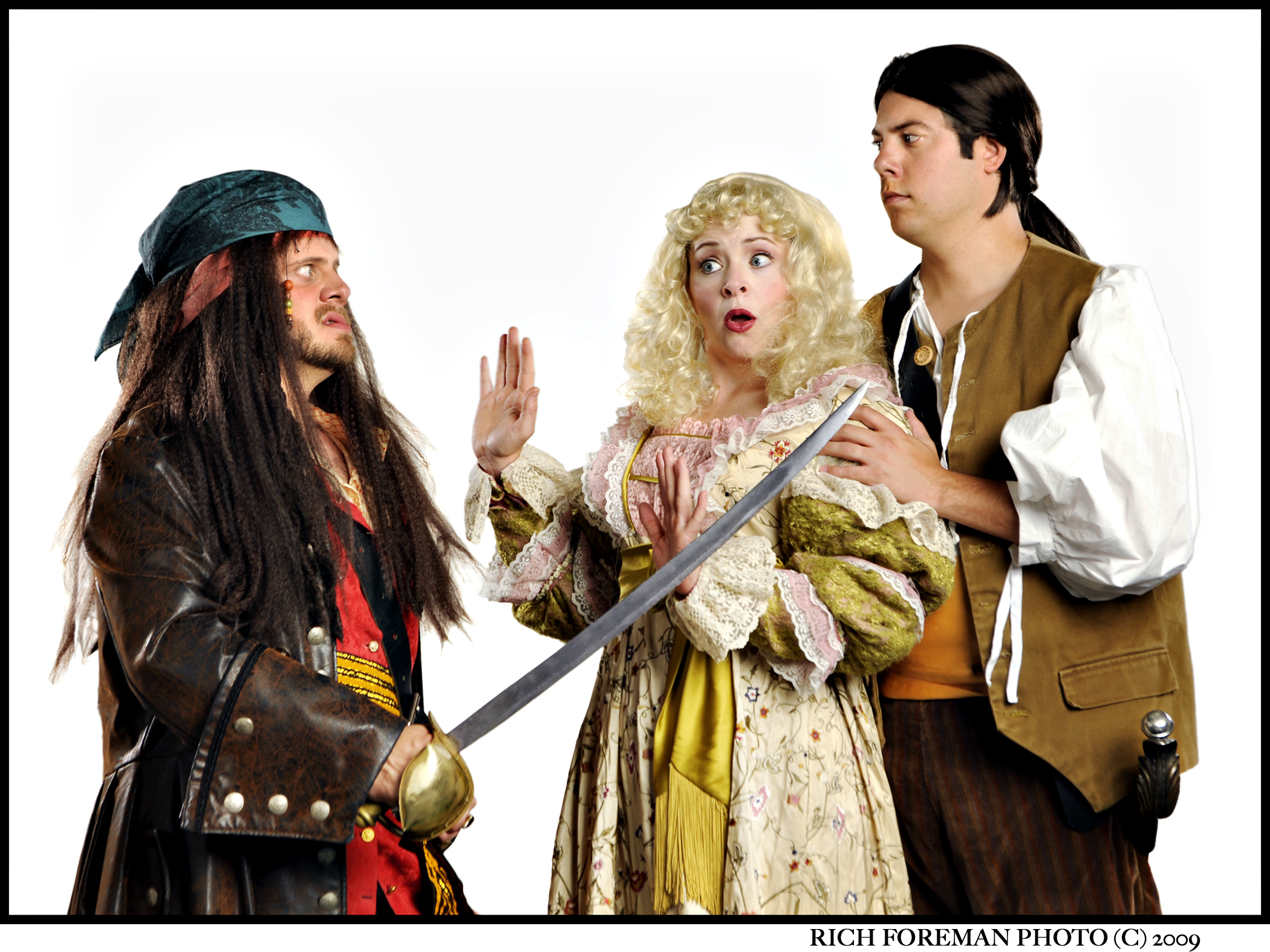Despite some creaky planks, Light Opera Works’ “Pirates” manages to stay afloat

“We don’t seem to make piracy pay” says Michael Cavalieri’s Pirate King early on in Light Opera Works’ Pirates of Penzance. Such a line had particular irony for Gilbert & Sullivan, since piracy of their works had become big business in America, where foreign copyrights were not recognized.
As such, the two decided to meet the pirates head on — both figuratively and literally — by premiering Pirates in the States so they would have a legal basis for going after pirated performances. Apart from a last-minute, collage-like run-through for fifty people in England to ensure copyright there (Act I only existed in musical sketches at that point), the first American performance was held in New York City with the music being written up through the morning of its New Year’s Eve premiere and with parts kept under lock and key between rehearsals.
Saturday’s opening night LOW performance offered a sense of what that haphazard first performance must have been like as the orchestra under music director Roger L. Bingaman began the overture with tempos, intonations and rhythms so tentative it sounded at times as if the orchestra was sight-reading. Although playing improved somewhat along the way, the Act II entr’acte ran into the same difficulties.
While more confidence was exuded during the male pirate choruses, diction was a constant problem, even more so when the Major General’s daughters made their appearance singing in so many unmatched timbres that a unified sound was eluded. The best of the three choruses was the Act II group of bumbling policeman sturdily led by bass-baritone Frank M. DeVincentis.
There was fine singing among the principals, most notably the lovers Frederic (tenor Matthew Giebel) and Mabel (soprano Alicia Berneche), although there were times when the pair hammed up their scenes so much that intentions were obscured.
It was as if there were two competing comedic approaches going on, given DeVincentis and his policemen’s understated performances, which was also the restraint shown by mezzo-soprano Barbara Landis as Ruth, the nursemaid who placed Frederic under the apprenticeship of pirates because she misheard the word pilot as pirate. She is usually the comic buffoon of the piece, but here she shows so much heart that she gives the sometimes corny antics of Mabel a run for her money.
Most typifying the overdone comedic approach is James Harms’ Major General, a patter part that demands razor-sharp rhythm and timing, neither of which Harms was able to deliver in this specialized type of role. The Major General is supposed to be a sappy aristocrat, not a flamboyant ham.
He is a mediocrity personified and like his H.M.S. Pinafore prototype Sir Joseph Porter, his entertainment value lays in making us believe that his character is improvisationally speaking or thinking his sung lines in rhyme. For that effect to be achieved, you need to be precisely on or even just ahead of the beat, but not behind it.
And yet there remained an overall joy to LOW artistic director Rudy Hogenmiller’s production which certainly brightened up the day after Christmas considerably, even with a blizzard, no less. As the company gets more performances under its belt, many of the problems should evaporate.
Pirates of Penzance plays through Jan. 3 at Northwestern University’s Cahn Auditorium, 600 Emerson (at Sheridan Rd.), Evanston; $30-$90; www.lightoperaworks.org; 847-869-6300.
Posted in Uncategorized



Posted Dec 29, 2009 at 6:56 am by GandSFan
Actually, the line you attribute to the Pirate King is spoken by Samuel (Robert Brady in this production)